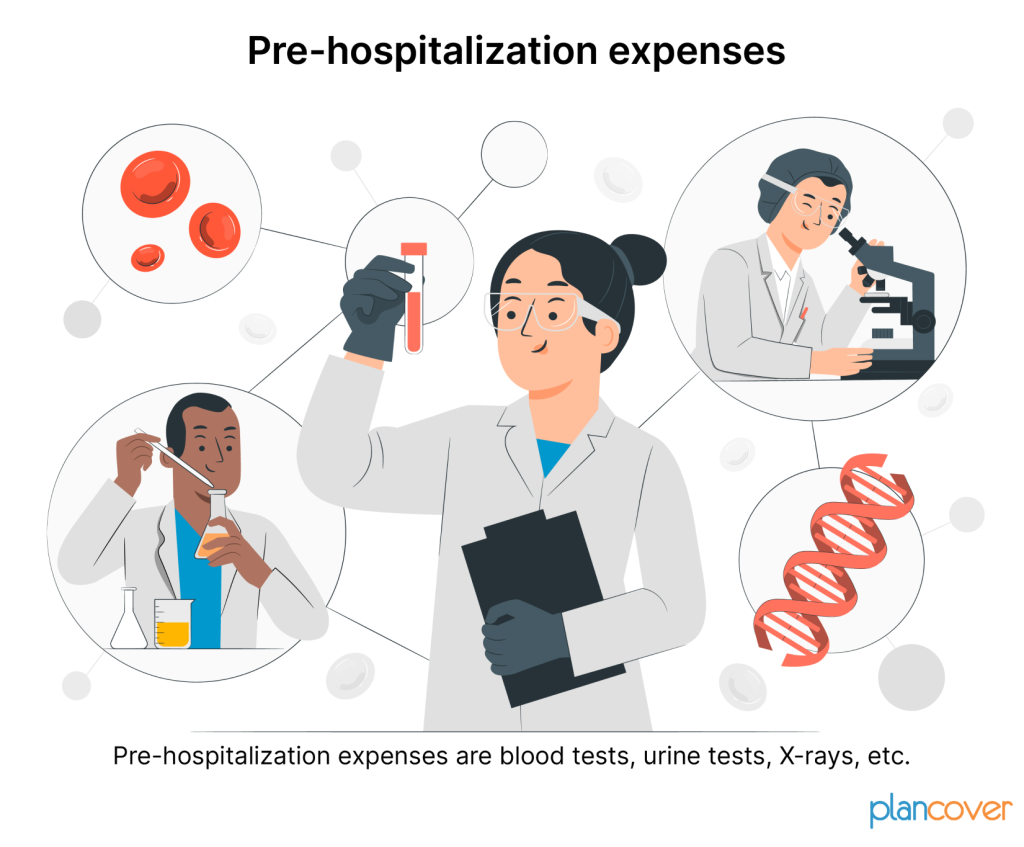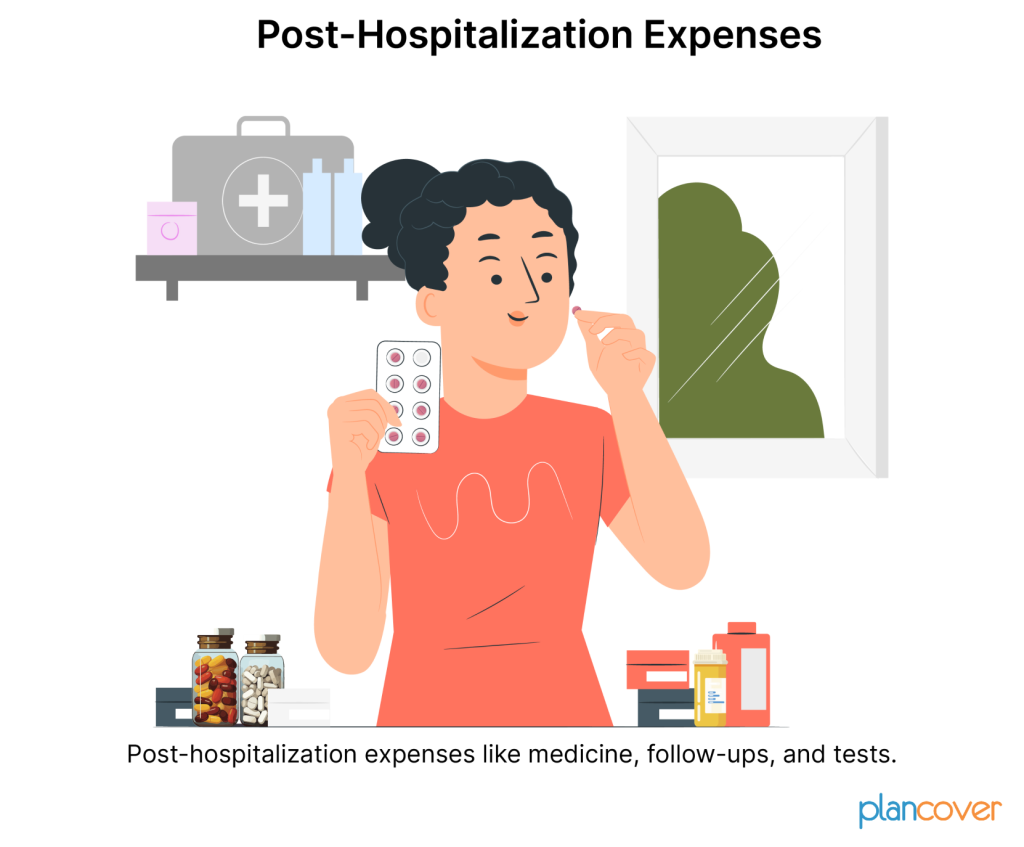What are Pre and Post Hospitalisation claims ?
What is Pre-hospitalization?
Pre-hospitalization refers to the period before a patient is formally admitted to a hospital. During this time, individuals often seek medical advice and undergo diagnostic tests to determine the nature and severity of their health condition. If the diagnosis indicates a significant medical issue, the patient may subsequently be admitted to a hospital for further treatment.
What is Post-hospitalization?
Post-hospitalization refers to the period following a patient’s discharge from a hospital, during which the recovery and ongoing treatment continue.
In many cases, medical care doesn’t conclude immediately upon leaving the hospital, and individuals may require follow-up treatments, medications, and consultations to ensure a smooth recovery.
What are pre-hospitalization expenses?
Pre-hospitalization expenses encompass the costs incurred for medical consultations, diagnostic tests, and scans conducted before a patient’s admission to the hospital. These expenses typically include tests such as X-rays, CT scans, MRIs, angiography, blood-sugar tests, and other diagnostic procedures aimed at assessing the individual’s medical condition. The purpose of these tests is to ensure a thorough understanding of the patient’s health status, aiding doctors in making informed decisions about the appropriate course of treatment.
Health insurance plans often offer coverage dorper-hospitalization expenses, allowing individuals to claim reimbursement forth costs associated with diagnostic tests performed in the 30 days leading up to hospitalization. The coverage duration may vary depending on the insurance provider. It’s important to note that pre-hospitalization expenses are applicable for the same illness or medical condition for which the insured individual is later admitted to the hospital

What are post-hospitalization expenses?
Post-hospitalization expenses encompass the costs incurred after a patient has been discharged from the hospital. These expenses typically include medications, follow-up medical consultations, and any necessary tests or procedures that are part of the post-discharge recovery plan. The purpose of post-hospitalization coverage is to provide financial assistance for the ongoing medical care needed after leaving the hospital.
Health insurance policies often include post-hospitalization coverage, allowing individuals to claim reimbursement for the medical expenses related to follow-up treatment for a specified period. The coverage duration can vary, with most policies offering coverage between 45 to 90 days post the discharge date from the hospital. It’s essential to note that post-hospitalization expenses may not cover certain therapies like acupuncture, and the coverage period depends on the specific terms and conditions of the insurance policy.
Just like with pre-hospitalization expenses, the extent of coverage for post-hospitalization expenses is determined by the nature and scope of the insurance policy.
Pre-hospitalization and post-hospitalization in health insurance usually work on a reimbursement model.

Here’s an example.
5th March – The patient consults a doctor, who recommends certain tests(pre-hospitalization expense).
8th March – The doctor reviews the test results (pre-hospitalization expense).
10th March – The patient is admitted to a hospital (hospitalization expense).
17th March – The patient undergoes treatment in the hospital and is discharged(hospitalization expense).
22nd March – Follow-up treatment (post-hospitalization expense).
27th March – Follow-up treatment (post-hospitalization expense).
In this scenario, the bills associated with the disease for which the insured was hospitalized must be submitted to the insurance company or the appointed Third-party Administrator (TPA), following the company’s policy guidelines.
Upon verification, the insurer will then reimburse the eligible-hospitalization and post-hospitalization costs within a specified period.
It’s essential to note that this reimbursement model may have variations across different insurance companies.